LUC Maps
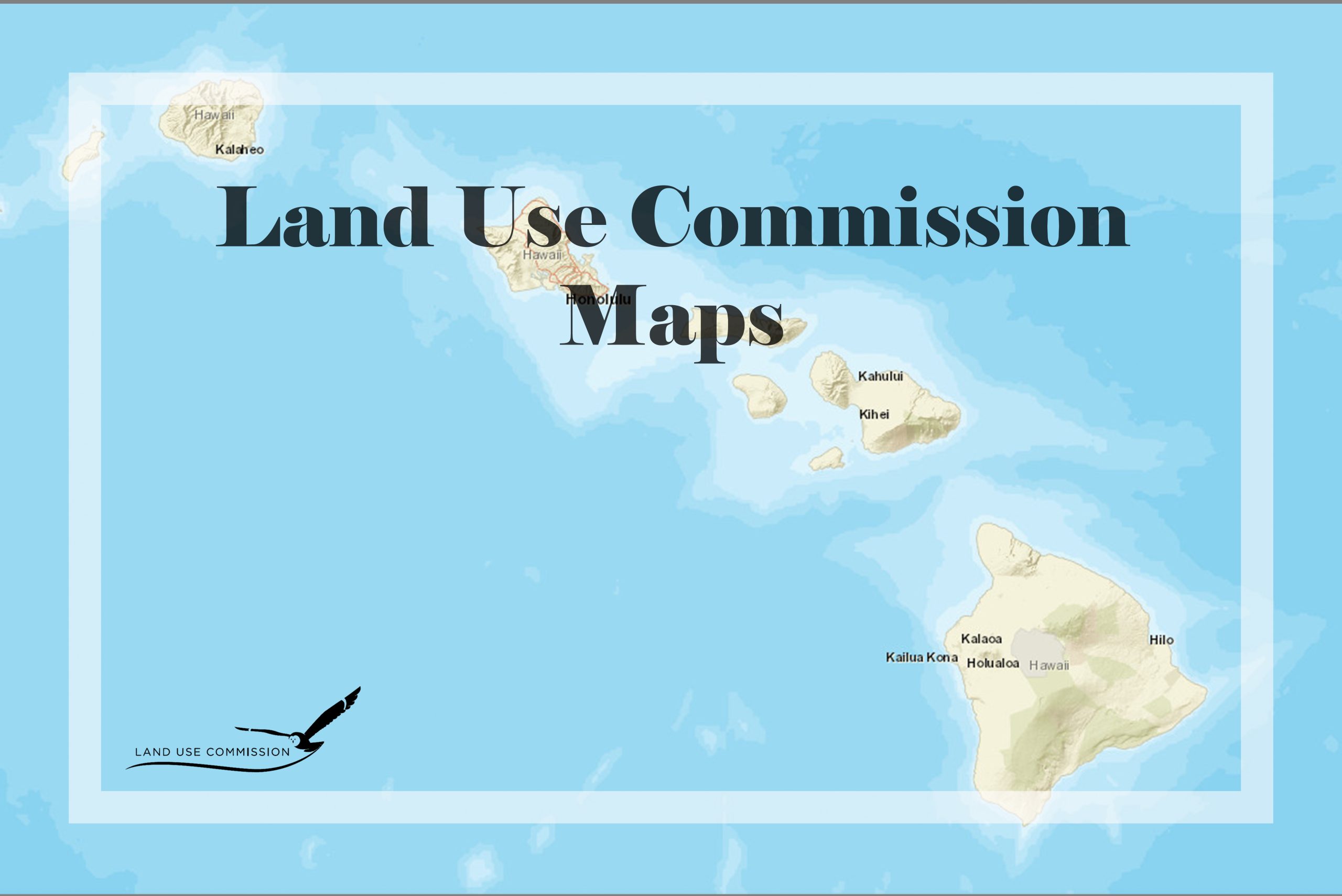
Easily search for information about State Land Use District Boundaries, LUC Docket Numbers, and Counties Tax Map Key Number (TMK).This map was produced by the LUC for informational purposes only.
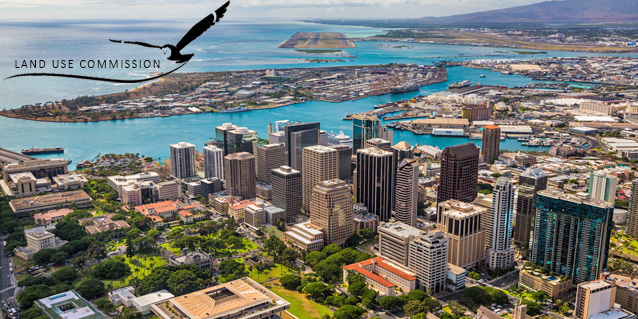
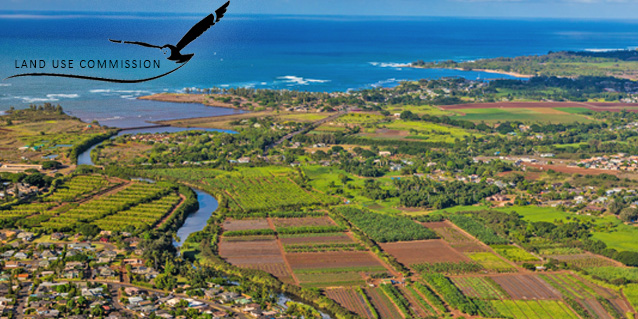
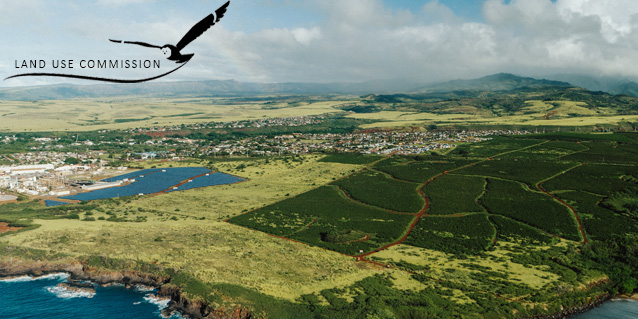
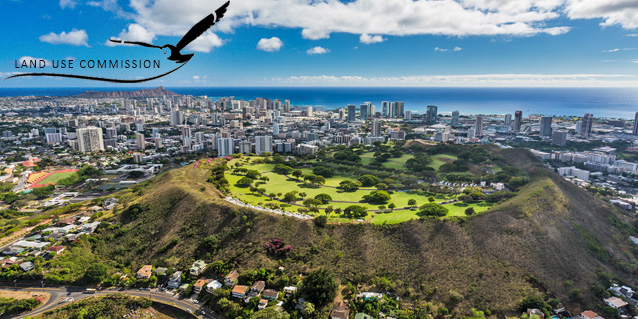
The State Land Use Law (Chapter 205, Hawaiʻi Revised Statutes) was adopted in 1961. Establishing a framework of land use management and regulation in which all lands in the State of Hawaiʻi are classified into one of four land use districts. To administer the Land Use Law the State Legislature established the Land Use Commission (Komikina Hoʻohana ʻĀina).
The Commission is composed of nine members, who are appointed by the Governor and confirmed by the State Senate. One member is appointed from each of the four counties; five members are appointed at-large. The Commissioners are non-paid volunteers.
Documents submitted to the LUC must adhere to the following guidelines:
